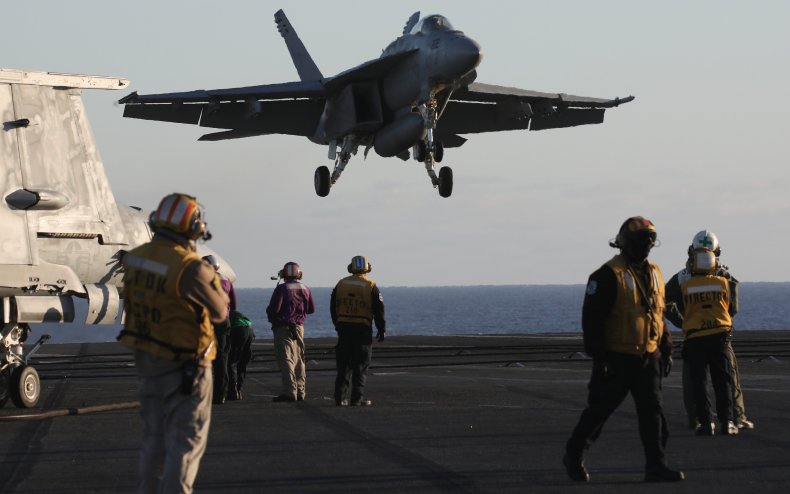David Brennan
The foreign ministers of Iran and Syria spoke by phone on Thursday as President Joe Biden launched his first airstrike against Iranian-linked targets in Syria, discussing the alliance between Damascus and Tehran and options to expand economic cooperation.
Iranian Foreign Minister Javad Zarid and Syrian Foreign Minister Faisal Mekdad spoke by phone, according to the state-run Syrian Arab News Agency.
Iran's state-run IRNA said the two ministers discussed "ways to foil plots hatched by certain Western states in the way of restoring security and stability in Syria," as well as the need for Western powers to respect "sovereignty and territorial integrity of the Arab country."
The call came as the Biden administration launched airstrikes against Iranian-linked militia groups in Syria; retaliation for a deadly rocket attack by an Iranian-backed group in Iraq earlier this month.
A Pentagon press release said the strikes destroyed "multiple facilities located at a border control point used by a number of Iranian-backed militant groups." Those included Kaitib Hezbollah and Kaitib Sayyid al-Shuhada, both of which are Iraqi groups and part of the umbrella Popular Mobilization Forces organization.
The U.K.-based Syrian Observatory for Human Rights monitoring group said the attack killed at least 17 pro-Iran fighters. "The strikes destroyed three lorries carrying munitions," the observatory's Rami Abdul Rahman told AFP. "There were many casualties."
The U.S. did not specify casualty estimates, but expressed confidence that the airstrikes hit their intended targets. Kaitib Hezbollah has denied involvement in the rocket attack on Erbil airport in northern Iraq, but Secretary of Defense Lloyd Austin told reporters the U.S. had established links between the attack and the facilities targeted on Thursday.
"We know what we hit," Austin said. "We're confident that that target was being used by the same Shia militants that conducted the strikes [on Erbil]."
The Iranian leadership is yet to issue an official response to the attack. The Biden administration had threatened retaliation for the Erbil strike, but repeatedly said the investigation into the incident was ongoing.
Thursday's strike was relatively limited, possibly reflecting Biden's need to juggle deterrence of Iranian activity in Iraq with his desire to revive the Joint Comprehensive Plan of Action nuclear deal. A larger attack or a direct strike on Iranian personnel would have risked escalation.
An unnamed U.S. official told Reuters that Thursday's attack was designed to punish the militias responsible for attacks in Iraq, but to also signal that Washington, D.C. does not want the situation to escalate into a more serious conflict.
The strikes may have eased some pressure from foreign policy hawks in the U.S. and Iran-skeptic allies like Israel, but it has prompted questions over the legal justification of such a move.
Critics have cited past tweets from Biden, Vice President Kamala Harris, and White House Press Secretary Jen Psaki condemning strikes in Syria ordered by former President Donald Trump.
 This file photo shows an F/A-18E Super Hornet fighter aircraft landing on the USS Nimitz aircraft carrier on January 18, 2020 off the coast of Baja California, Mexico. Mario Tama/Getty Images/Getty
This file photo shows an F/A-18E Super Hornet fighter aircraft landing on the USS Nimitz aircraft carrier on January 18, 2020 off the coast of Baja California, Mexico. Mario Tama/Getty Images/Getty
No comments:
Post a Comment